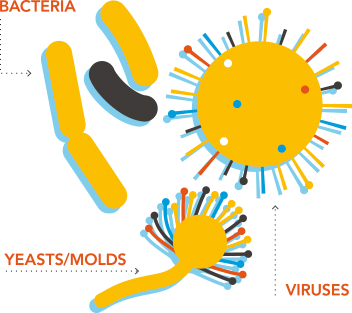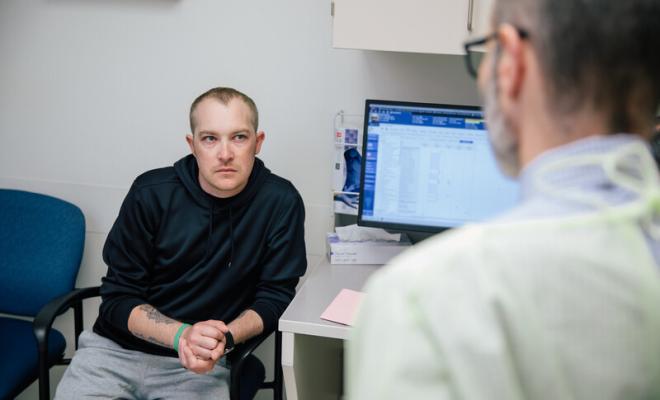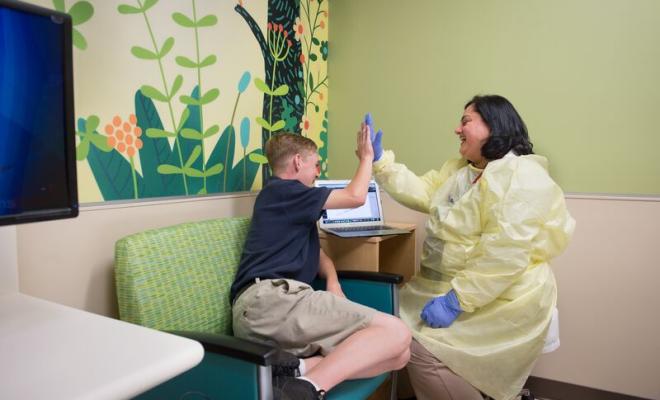Why Antimicrobial Tools Are Important
Pulmonary infections, due to infectious agents such as bacteria, viruses, and fungi, are a common occurrence in people with cystic fibrosis. While effective treatments are available for some of these common pathogens, various drug-resistant strains of bacteria have developed that make treatment difficult.
Certain research tools, such as clinical isolates of Pseudomonas aeruginosa, Burkholderia cepacia complex, and other bacterial strains are available for CF research purposes and can aid scientists in the discovery of new anti-infective therapies.
Model Systems for CF Antimicrobial Research
For information on in vivo murine models to study anti-microbial agents in CF, contact:
Tracey Bonfield, Ph.D. D (ABMLI)
Assistant Professor, Department of Pediatrics
Case Western Reserve University
tracey.bonfield@case.edu
Tel: 216-368-6896
References
- Van Heeckeren, A. M., M. D. Schluchter, W. Xue, and P. B. Davis. 2006. Response to acute lung infection with mucoid Pseudomonas aeruginosa in cystic fibrosis mice. Am.J.Respir.Crit Care Med. 173:288-296
- Van Heeckeren, A. M., M. D. Schluchter, M. L. Drumm, and P. B. Davis. 2004. Role of CFTR genotype in the response to chronic Pseudomonas aeruginosa lung infection in mice. Am.J.Physiol Lung Cell Mol.Physiol 287:L944-L952
- Van Heeckeren, A. M. and M. D. Schluchter. 2002. Murine models of chronic Pseudomonas aeruginosa lung infection. Lab Anim 36:291-312
Microbial Resources
Clinical isolates of P. aeruginosa (bacterial strains isolated from the lungs of people with CF) are recommended for research areas including new drug discovery, biofilm research, virulence studies, and drug-resistance studies.
CF isolates of Staphylococcus aureus (including MRSA), Stenotrophomonas maltophilia, and Achromobacter xylosoxidans also are available.
For more information, contact:
Rafael E. Hernandez, M.D., Ph.D.
Infectious Disease
Seattle Children's Research Institute
CFisolatecore@seattlechildrens.org
CF Isolates Core
***
B. cepacia complex and other non-fermenting bacterial isolates can be requested from the CF Foundation-supported B. cepacia Research Laboratory and Repository at the University of Michigan, Ann Arbor.
For more information, contact:
Lindsay J. Caverly, M.D.
Pediatric Pulmonology
University of Michigan
caverlyl@med.umich.edu
Tel: 734-936-9767
Fax: 734-615-4770
References
- LiPuma JJ. The Changing Microbial Epidemiology in Cystic Fibrosis. Clin Microbiol Rev. 23(2):299-323. 2010. PMID: 20375354
***
Nontuberculous mycobacteria (NTM) isolates can be requested through the CF Foundation-supported Colorado NTM Core Clinical Research National Resource Center at National Jewish Health, Denver. The core provides isolates to researchers on request and after committee review. Requests can be made by species or other characteristics, and many isolates have associated meta-data including whole genome sequencing, phylogenomic analysis, and antimicrobial susceptibility information available.
Currently, this collection has over 1,000 NTM isolates, including longitudinal isolates collected through the CF Foundation-supported diagnostic (PREDICT: NCT02073409) and treatment (PATIENCE: NCT02419989) trials.
For more information, contact:
Rachael Rodger, MPH
Clinical Research Coordinator
National Jewish Health Advanced Diagnostic Laboratory
Colorado Cystic Fibrosis Research & Development Program
RodgerR@njhealth.org
Tel: 303-270-2753
Fax: 303-398-1953
Microbial Informatics
Advances in gene sequencing technology have enabled sequencing of two common CF bacterial genomes: Pseudomonas aeruginosa and Burkholderia cepacia.
Understanding the importance of this resource for the research community, the Cystic Fibrosis Foundation supports the construction of annotated databases that serve as a central portal through which researchers may access high-quality genome-associated information about the bacteria and its potential drug/vaccine targets.
View the Pseudomonas Genome Database and the Burkholderia Genome Database.


